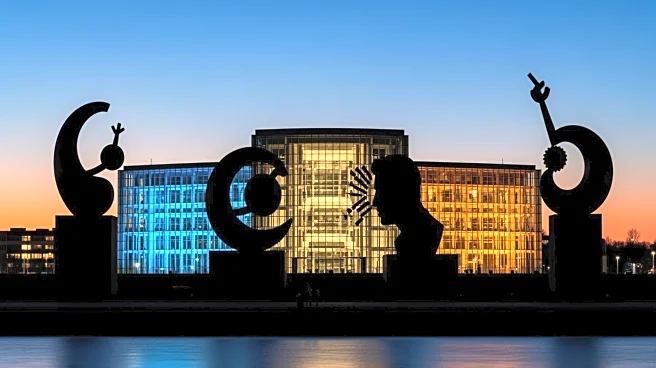What's Happening?
The G20 summit in South Africa concluded with diplomatic tensions between the U.S. and South Africa. The U.S. boycotted the summit over claims of persecution of Afrikaner minorities in South Africa. The U.S. was
set to take over the G20 presidency but faced resistance from South Africa, which refused to hand over the presidency to a junior U.S. official. The summit focused on issues like climate change and global wealth inequality, with South Africa championing a declaration that faced opposition from the U.S. and Argentina.
Why It's Important?
The diplomatic spat highlights ongoing tensions between the U.S. and South Africa, affecting international relations and cooperation within the G20. The U.S. boycott and the presidency handover dispute underscore challenges in global diplomacy and the impact of domestic policies on international engagements. The summit's focus on issues affecting poorer countries marks a shift in priorities, emphasizing the need for global attention on inequality and climate-related challenges. The outcome may influence future G20 agendas and the role of emerging economies in global decision-making.
What's Next?
The U.S. is expected to host the next G20 summit in Florida, potentially influencing the agenda and participation of member countries. The diplomatic tensions may lead to further discussions on representation and engagement within the G20. South Africa's emphasis on development priorities from an African perspective could shape future international cooperation efforts. The summit's declaration, although non-binding, may prompt initiatives addressing global inequality and climate change.










